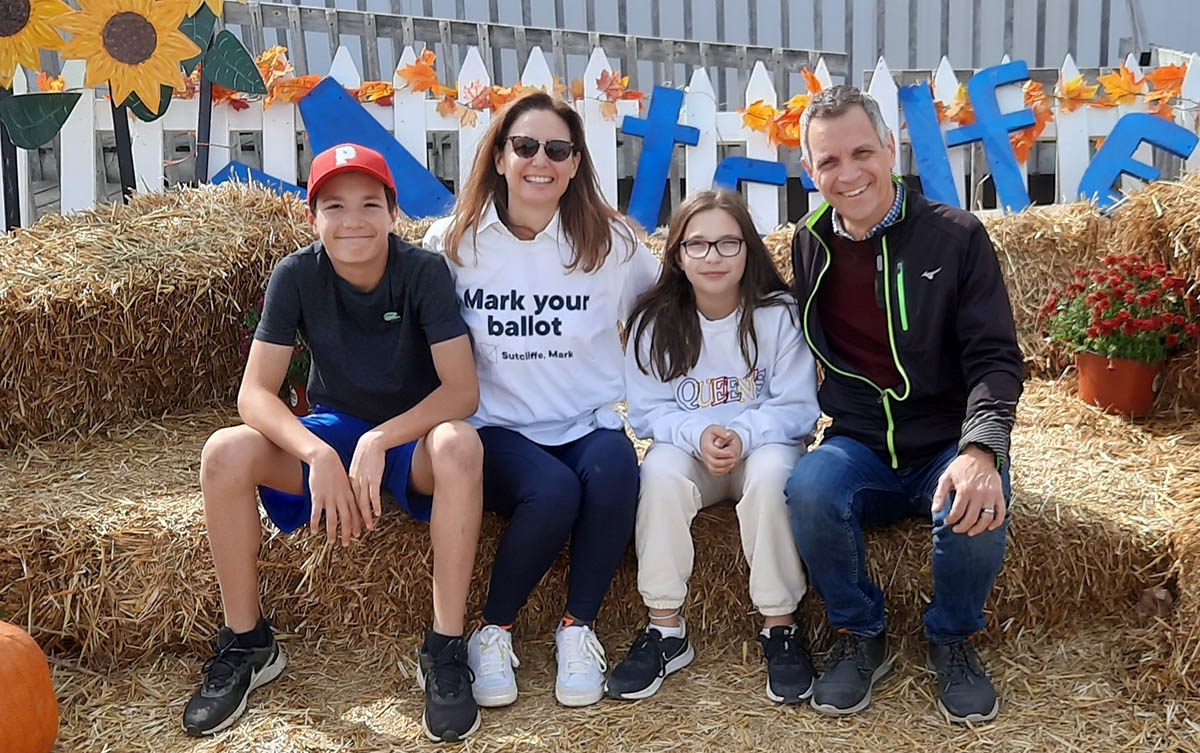
Ottawa “Mark”-ed their ballots and the pollster got it wrong.
Photo by Jean-Marc Carisse
Ottawa’s 2022 election was the first real competition for mayor in eight years. The vote was Catherine McKenney’s to lose. Until election day, Mayor-elect Mark Sutcliffe seemed to be playing a game of catch-up.
The results, however, were a surprise in the least, with Sutcliffe taking over 51 percent of the vote to McKenney’s 39 percent; a massive surprise as pollsters consistently said there was a slight McKenney lead, at the very least a statistical tie.
In hindsight, the reason seems evident. McKenney got a head start by announcing their run early and gained momentum with the support of the downtown core. McKenney also received positive national coverage for their response to the Freedom Convoy, demonstrating to constituents that they were a primary concern and to the city at large that they would employ the same grit to get things one citywide.
McKenney remained popular among downtown and urban voters throughout the campaign. We will never know if being caught on a hot-mic coaching councillor Mathieu Fleury to respond in French was viewed as McKenney blatantly subverting the inquiry into the use of the federal Emergencies Act—an ideological bent that voters in Ottawa are keen to avoid—or if their quarter of a billion-dollar bicycle infrastructure plan was their downfall.
The mayor-elect will be one of a dozen newbies taking their seats on City Council, along with the re-elected Watson club members: Tim Tierney, Cathy Curry, Laura Dudas, George Darouze, Matthew Luloff, and Allan Hubley. For a city that just came out of one of the most tumultuous Council terms, the appetite for change in Ottawa seemed surprisingly low. Although not a Watson carbon copy, Mark Sutcliffe’s platform of stable government is similar enough to Watson in policy compared to his primary opponent.
In Kichissippi, Jeff Leiper, a long-time McKenney ally, was re-elected with ease, with 72 percent of the vote, and in McKenney’s own riding, her supported candidate Ariel Troster took in 62 percent of the vote; much lower than McKenney’s 2018 win, but an extremely respectable number for a rookie candidate.
It seems apparent that a Leiper or Troster supporter was likely to vote for McKenney, but signs of concern from the McKenney camp near the end of the campaign about the mobilization of the vote in the boroughs, as pollsters and media started noting just how tight the race, led McKenney to post a video addressing their love for Kanata and how they had lived there, and understood the community’s issues.
From the beginning, McKenney had been stating her alliance with the suburbs. In a March 2022 interview, they told Ottawa Life, “I have been an assistant to different councillors, including one in the suburbs for many years, and I’ve lived in the suburbs.” However, Kanata Allan Hubley’s and Cathy Curry’s re-election as ardent Watson club members show that Sutcliffe had the winning message in the area.
Sutcliffe didn’t campaign on social programs; he campaigned on fiscal restraint and fixing Ottawa’s transit system rather than pushing for fare freezes and youth passes. With Kanata residents paying for a substantial amount of the O-Train Confederation Line and not being able to reap any of the benefits when the system does work, Sutcliffe’s message of fiscal responsibility and good service resonated with voters outside the downtown core.
When Ottawa Life spoke to Sutcliffe in July 2022, his message was level-headed without an ideological leaning. He stated, “If you want people to use public transit, you have to make it a great service. People will not use a terrible service because it is free.”
In addition, Sutcliffe’s fiscal plan was moderate, not on the conservative side like the third-place Bob Chiarelli, but not progressive like McKenney’s. He seemed to offer the most balanced plan to Ottawa residents who own property and homes.
Inflation in Canada is already causing problems for most Ottawa residents, and with rising federal taxes, Sutcliffe likely seemed like the safest choice for property owners and the business-minded. A rise in property taxes was probably the last thing anybody in Barrhaven wanted, especially when an OC Transpo commute downtown still takes over an hour on average.
Catherine McKenney will have to sit out the next four years while their protege Ariel Troster holds the spot. McKenney could run again for Council or mayor in 2026 and has a solid enough support base that re-election would be likely, or perhaps they will turn their ambitions toward provincial politics and run with the provincial NDP.
In the end, Mark Sutcliffe was the sensible centrist Ottawa wanted, but for the mayor-elect, the hard work is just beginning.
The lesson we all take from the 2022 Ottawa election is that polls are for dogs.









